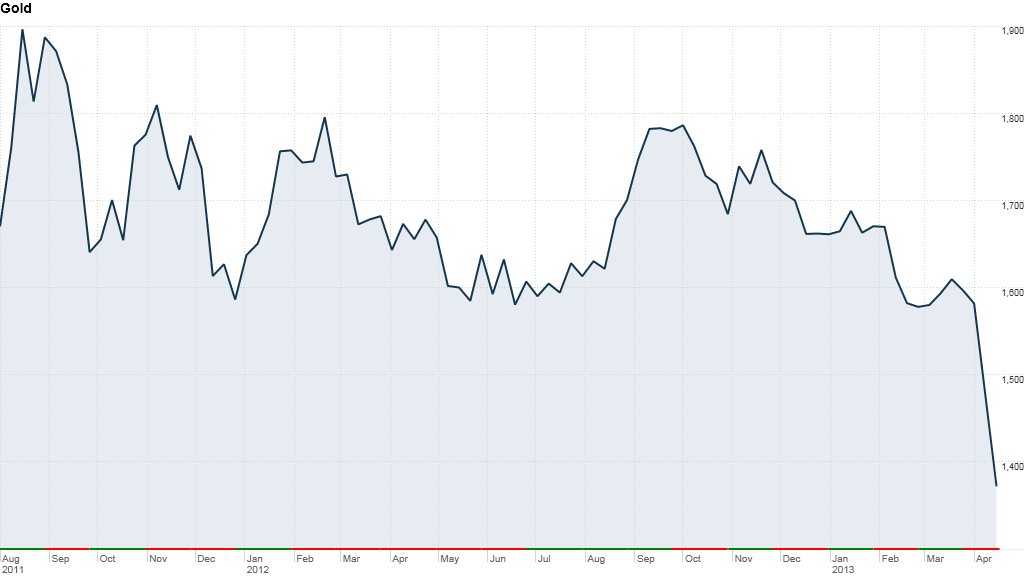Gold plunged more than 9% Monday to its lowest level in over two years, in the biggest one-day sell-off in decades, as a global tumble in commodities gained steam.
Gold for June delivery, the most active futures contract, lost more than $140 an ounce to trade well below $1,400, adding to Friday's sharp sell-off, when the precious metal slumped 5%. The gold contract is now in bear market territory, having fallen 29% from its record high in September 2011.
Spot gold, which is for April delivery, also tumbled -- dropping 9.3%, the biggest drop since Jan. 22, 1980, when gold prices plunged 17% in a single trading day.
Monday's broad decline was sparked by slowing growth in China. The world's second-biggest economy grew at a 7.7% annual rate, which was weaker than the 8% most economists were expecting.
Coupled with a weaker-than-expected report on industrial production, the China data could mean reduced demand for commodities from the world's second-biggest economy and subdued inflationary pressures. Gold is often viewed as a safe store of value when inflation picks up.
Related: Weak yen drives Japan gold rush
Other metals including silver, copper and platinum were also weaker, and oil lost more than 3%.
Mining stocks such as Randgold (GOLD) and Kincross (KGC) and gold-backed exchange traded funds including SPDR Gold Shares (GLD) and Market Vectors Gold Miners (GDX) were all hit hard.
Related: New markets milestones in sight

Investors have been turning their backs on gold recently and pouring money into stocks funds instead as equity markets in the United States have gone on a record-breaking run.
Friday alone, investors yanked more than $1 billion out of the SPDR Gold ETF. So far this year, they've pulled nearly $10 billion out of the $55 billion ETF.
Reports last week that Cyprus may sell gold worth 400 million euros as part of an international rescue added to the exodus, in part because of concerns that other European central banks with much bigger reserves may do the same.
Last week, Goldman Sachs and Deutsche Bank cut their forecasts for the price of gold, citing improving prospects for the U.S. economy, which would reduce the need for further monetary stimulus.



